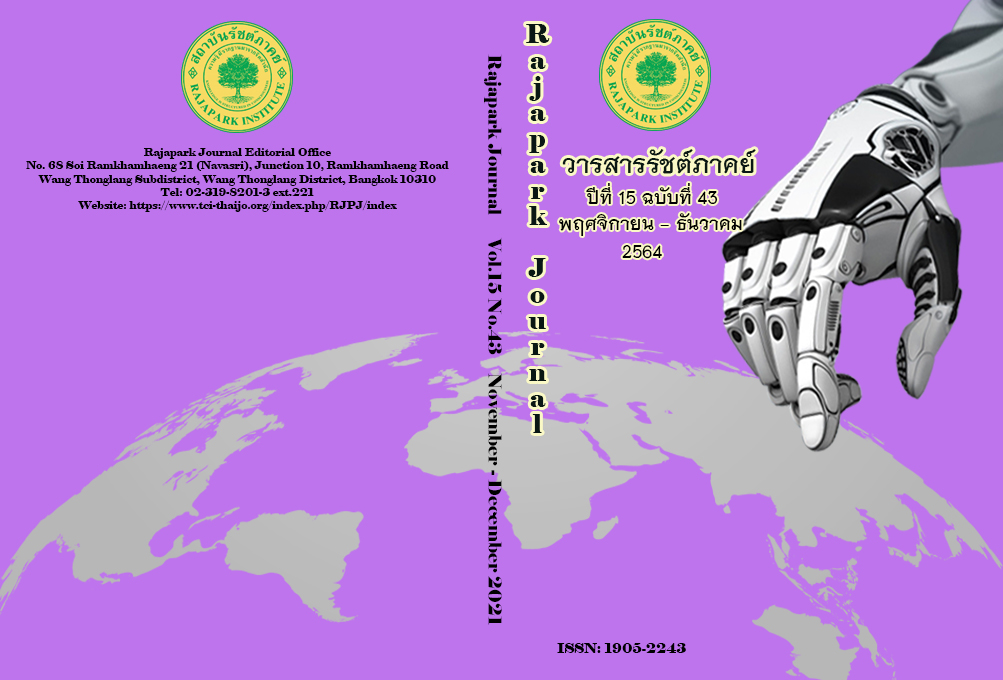Model of Causal Factors on the Success of Educational Institution Management in Thailand
Main Article Content
Abstract
The objectives of this research were to study the model of causal factors on the success of educational institution management in Thailand. This research employed a mixed method. The population, namely the sample for the quantitative research component, consisted of 405 educational institution executives. For qualitative research, in-depth interviews were conducted with 9 key informants and data was analyzed by content analysis. The research findings showed that the model of Causal Factors on the Success of Educational Institution Management in Thailand. in each element are as follows: 1) Leadership (LDS) with a normalized element weight between 0.86-0.89; 2) Strategic Management (STM) has normalized component weights between 0.89-0.94; 3) Organizational Culture (ORC) has normalized component weights between 0.94-0.96; 4) Organizational Engagement (EEM) has adjusted component weights. The standard was 0.89-0.91; 5) Performance Motivation (MTT) was found to have a normalized component weight of 0.92-0.94; and 6) Performance Achievement (PFS) was found that the standard adjusted component weight was 0.83-0.88. The model was in good consistency with the empirical data. The values consisted of 1) CMIN/df. = 1.669, 2) Comparative Fit Index: CFI = 0.986, 3) Goodness of Fit Index: GFI = 0.935, 4) Adjusted Goodness of Fit Index: AGFI = 0.927, 5) Root Mean Square Error of Approximation: RMSEA= 0.039, 6) Norm fit index: NFI= 0.973, 7) Incremental fit index: IFI = 0.988, and 8) Root Mean Square Residual: RMR = 0.026.
Article Details
Views and opinions appearing in the Journal it is the responsibility of the author of the article, and does not constitute the view and responsibility of the editorial team.
References
Agasisti, T. (2017). Management of Higher Education Institutions and the Evaluation of their Efficiency and Performance. Tertiary Education and Management, 23(3), 187-190. https://doi.org/10.1080/13583883.2017.1336250
Bass, B. M., & Riggio, R. E. (2006). Transformational Leadership (2nd ed). New Jersey: Lawrence Erlbaum Associates.
Bernhard, A. (2009). A Knowledge-based Society Needs Quality in Higher Education. Problems of Education in the 21st Century, 12, 15-21. http://oaji.net/articles/2014/457-1393266717.pdf
Butler, D., & Leahy, M. (2015). Moving Towards Innovation: The Development of a Sustainable Framework for Professional Learning. In Shaping the Future: How Technology can Lead to Educational Transformation. The Liffey Press.
Chantavanich, S. (2018). Qualitative Research Methods (18th ed.). Bangkok: Chulalongkorn University Press.
Education Council Secretariat, Ministry of Education. (2016). State of Thai Education, 2014/2015, “How to Reform Thai Education to Keep up with the World in the 21st Century”. Bangkok: Pimdeekarnpim.
Filho, W. L. (2016). Transformative Approaches to Sustainable Development at Universities. Springer International Publishing AG: Cham, Germany.
Lynch, R. (2015). Strategic Management (7th ed.). United Kingdom: Pearson Education, Inc.
Norwich, B., & Ylonen, A. (2015). Lesson Study Practices in the Development of Secondary Teaching of Students with Moderate Learning Difficulties: A Systematic Qualitative Analysis in Relation to Context and Outcomes. British Educational Research Journal, 41(4), 629-649.
Office National Education Board. (2020). Education Reform. Bangkok: Publisher, Cabinet and Government Gazette.
Office National Education Board. (2021). Education Quality Assurance B.E. 2563(2020). Bangkok: Government Gazette.
Oke, A, Munshi, N., & Walumbwa, F. O. (2009). The Influence of Leadership on Innovation Processes and Activities. Organizational Dynamics, 38(1), 64-72.
Prasitratasin, S. (2011). Project Evaluation: Principles and Applications. Bangkok: Liang Chiang Printing Press.
Schein, E. H. (2004). Organizational Culture and Leadership (3rd ed.). San Francisco: Jossey-Bass.
Soebari, T. S., & Aldridge, J. M. (2015). Using Student Perceptions of the Learning Environment to Evaluate the Effectiveness of a Professional Development Programme. Learning Environments Research, 18(2), 163-178. https://doi.org/10.1007/s10984-015-9175-4
Sritragarn, T., Boonpoo, S., & Buasiri, A. (2017). A Development of Administration Strategies toward Excellence of Graduate Program Educational Management Mahachulalongkornrajavidyalaya University. Journal of Educational Review Faculty of Education in MCU, 6(1), 1-15.
Wheelen, T. L., & Hunger J. D. (2012). Strategic Management and Business Policy (13th ed.). New Jersey: Pearson Education, Inc.
Yenice, S. (2018). Organizational Culture and Managing Change. Retrieved from https://www.ifcc.org/media/478037/sedef-yenice-organizational-culture-and-managing-change-pathcape.pdf
Zgodavová, K., Urbančíková, N., & Kisela, M. (2015). Enhancement of the Quality Assurance Model at the Slovak University: Case Study. Quality Innovation Prosperity, 19(1). 1-17. http://www.qip-journal.eu/index.php/QIP/article/view/610/625


